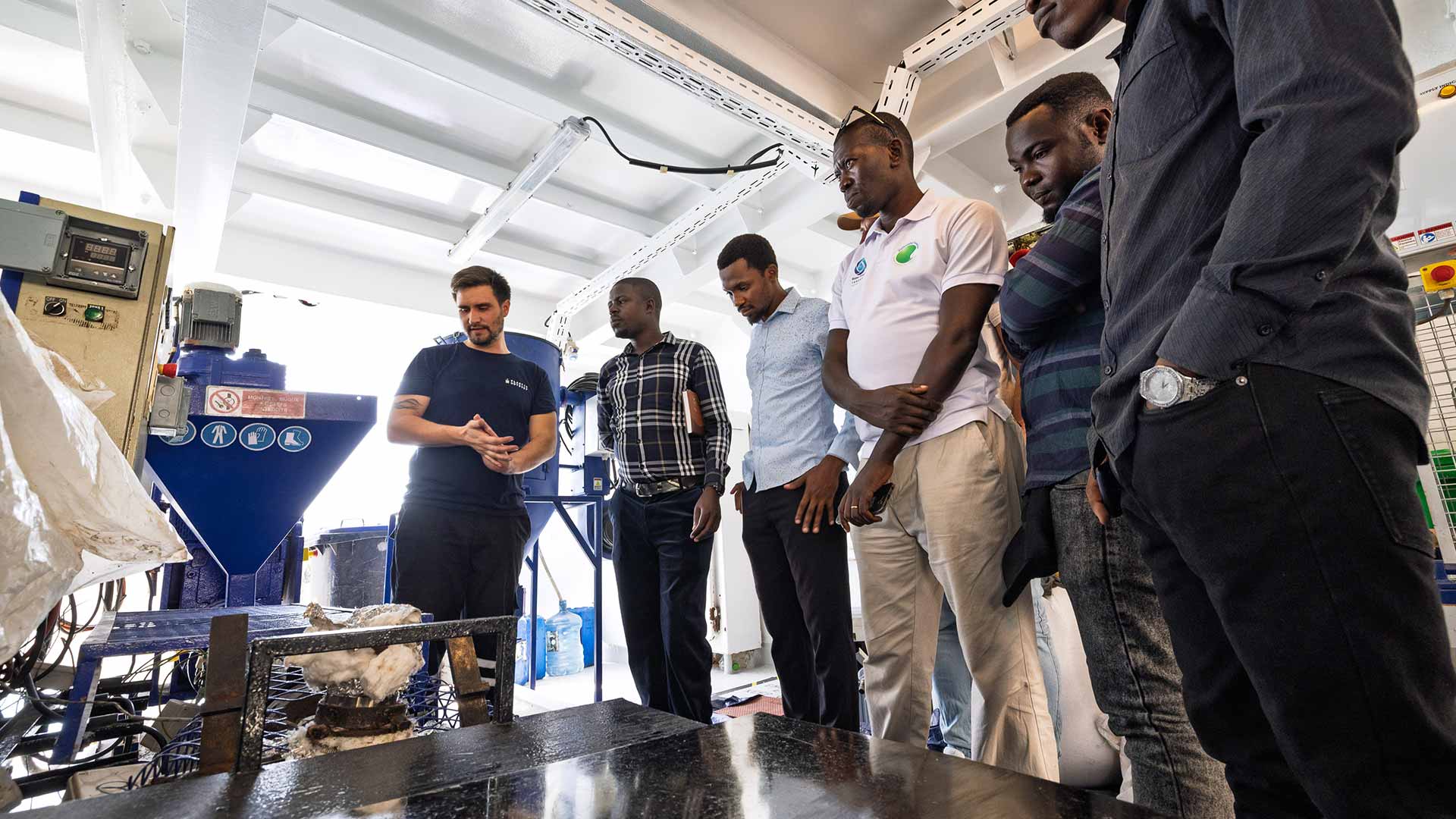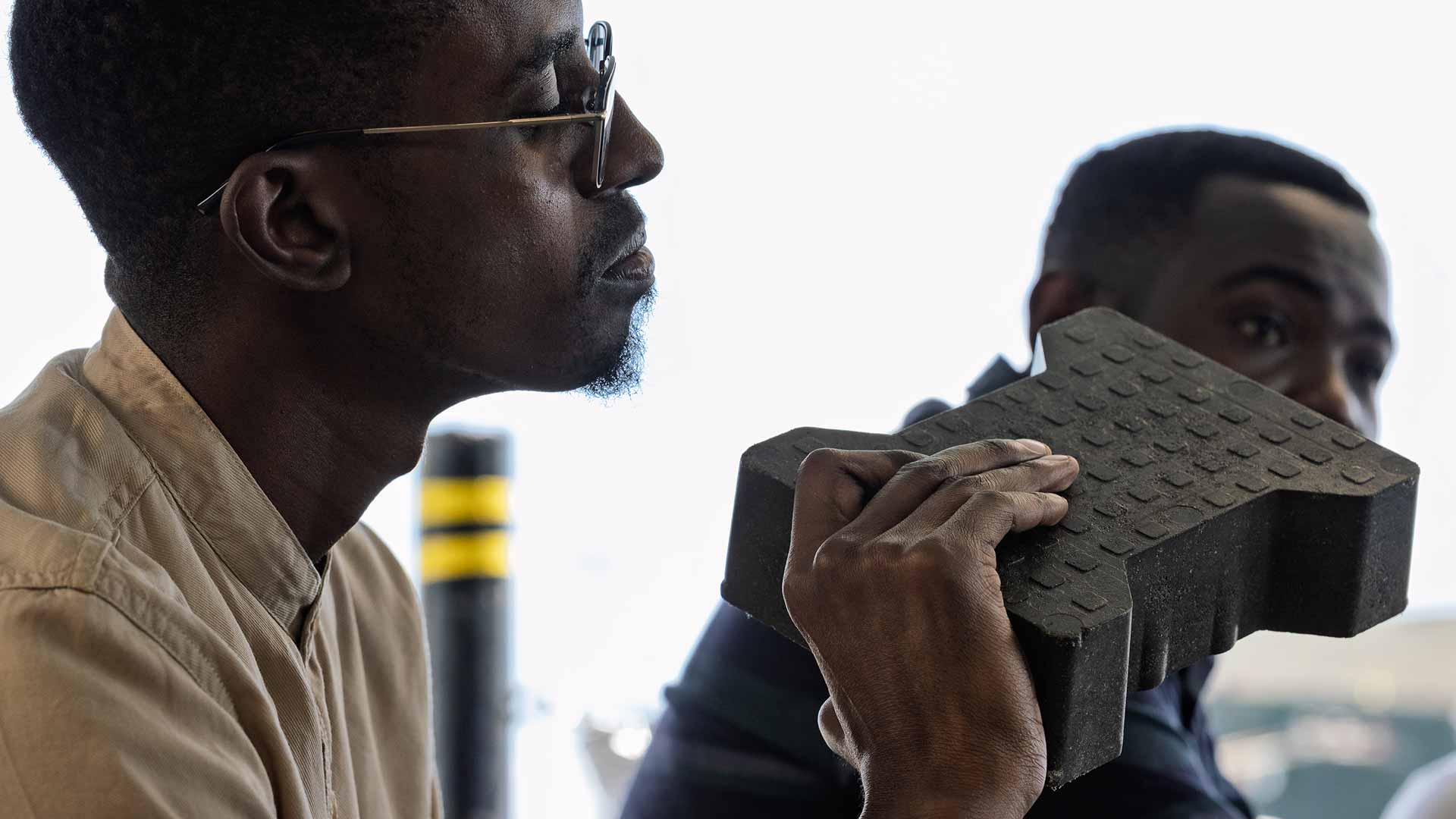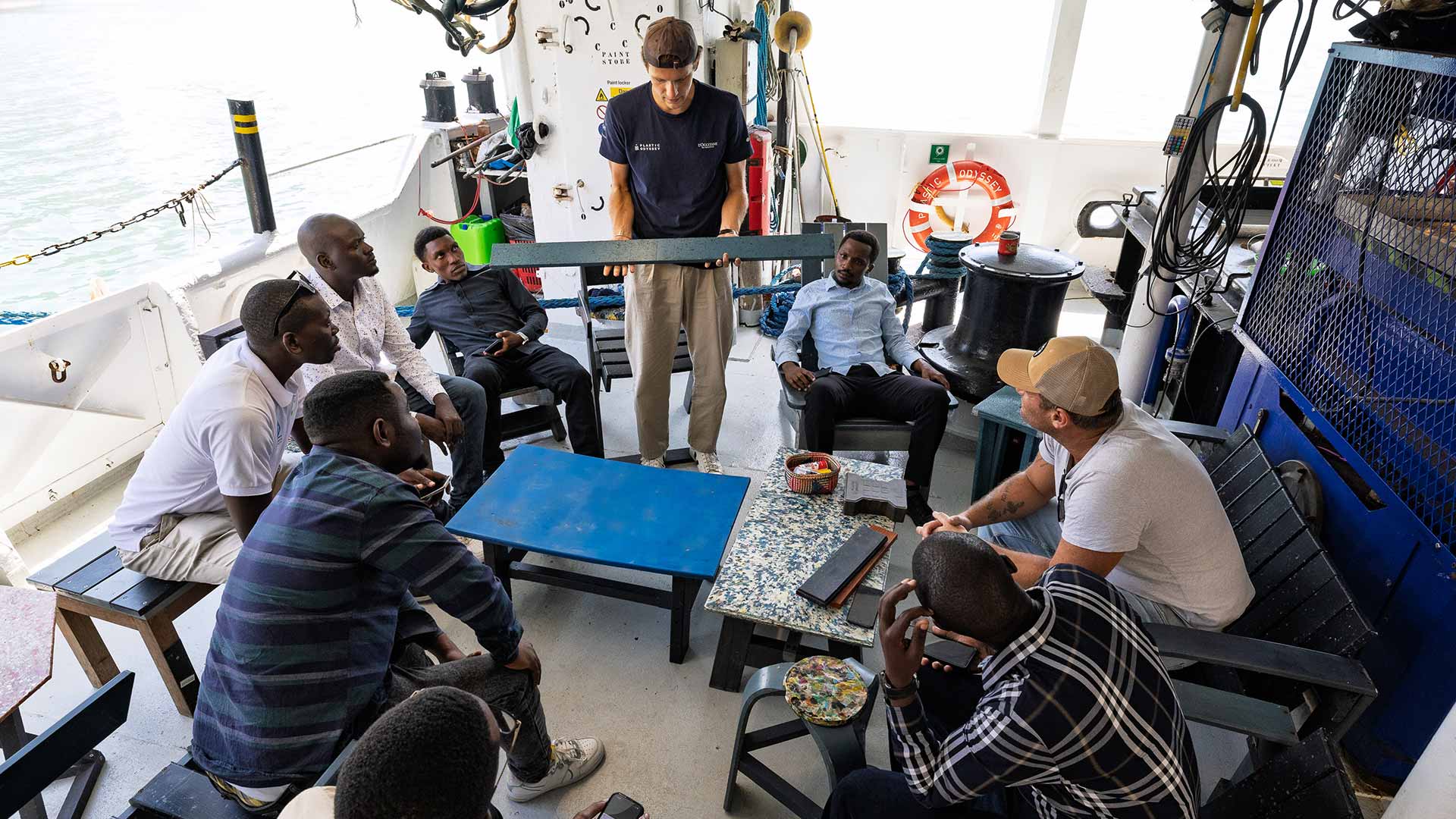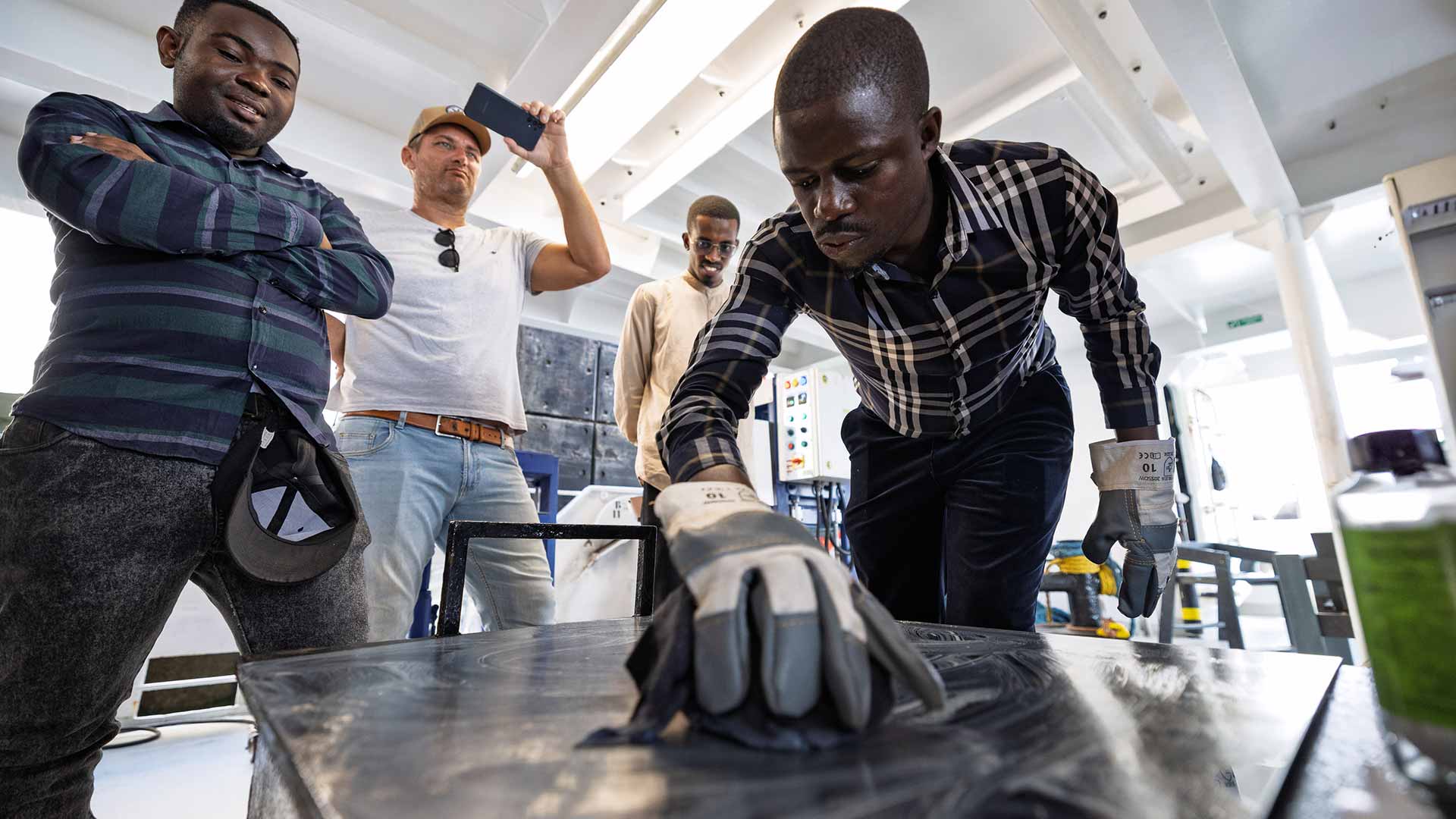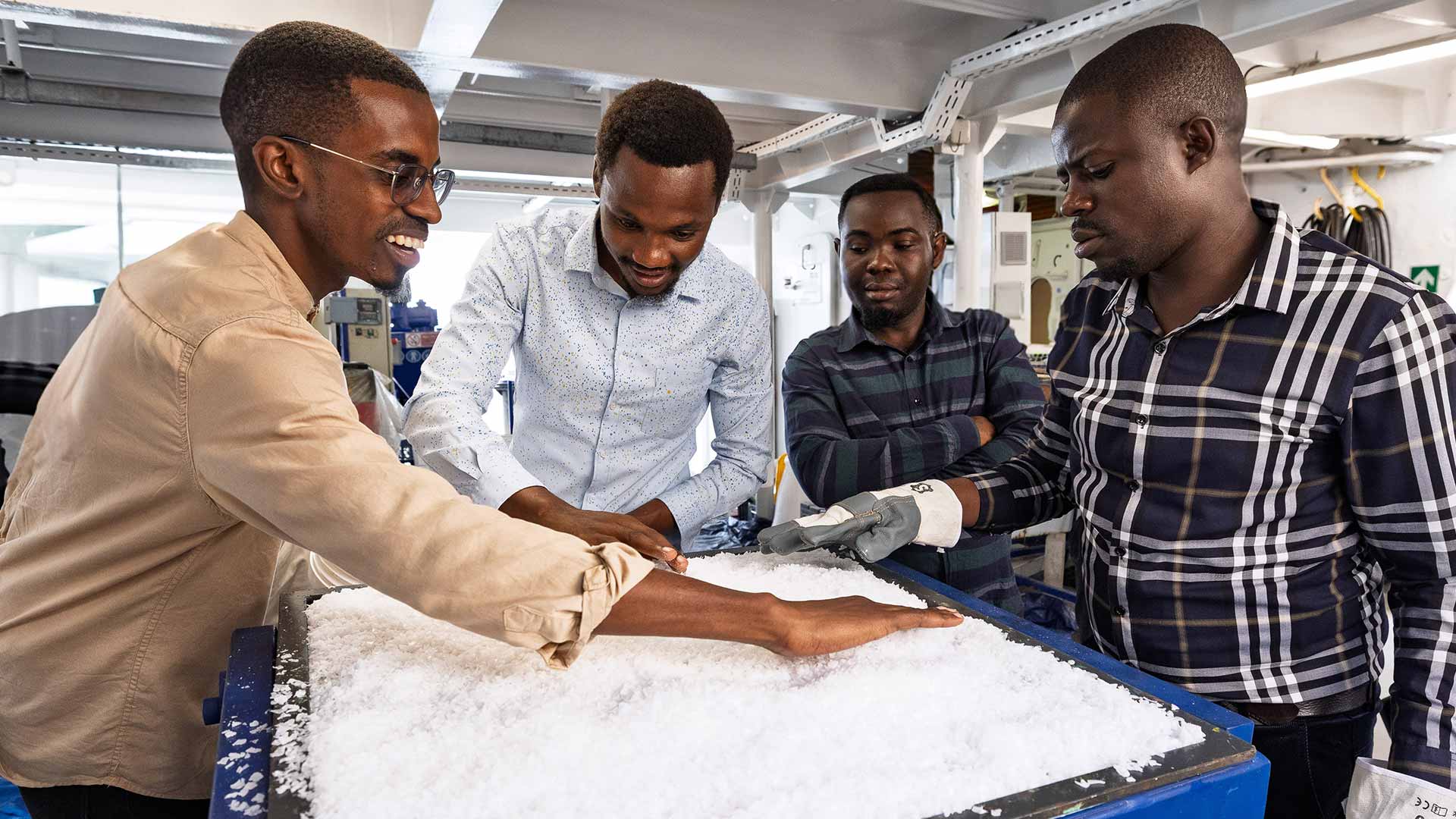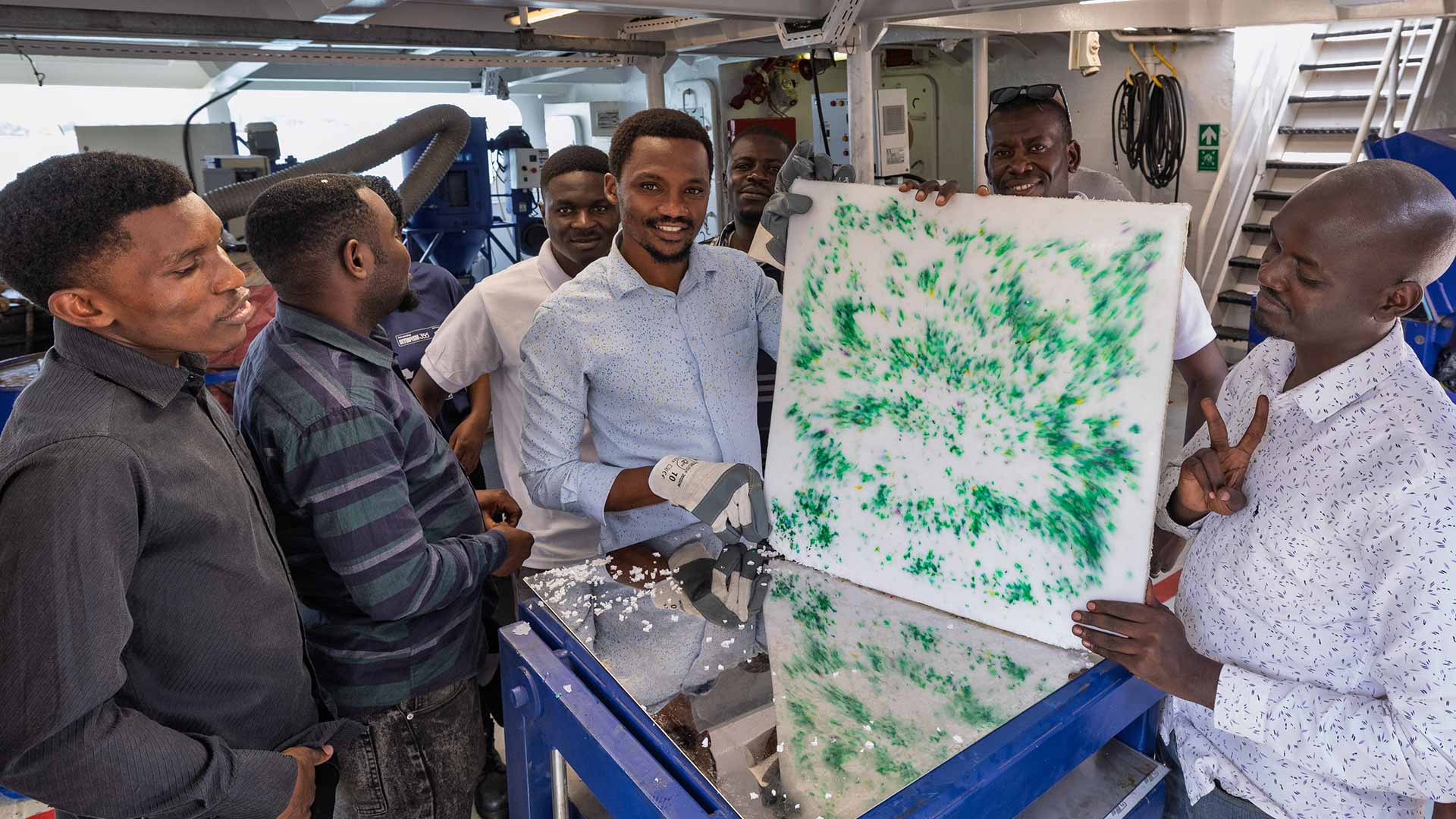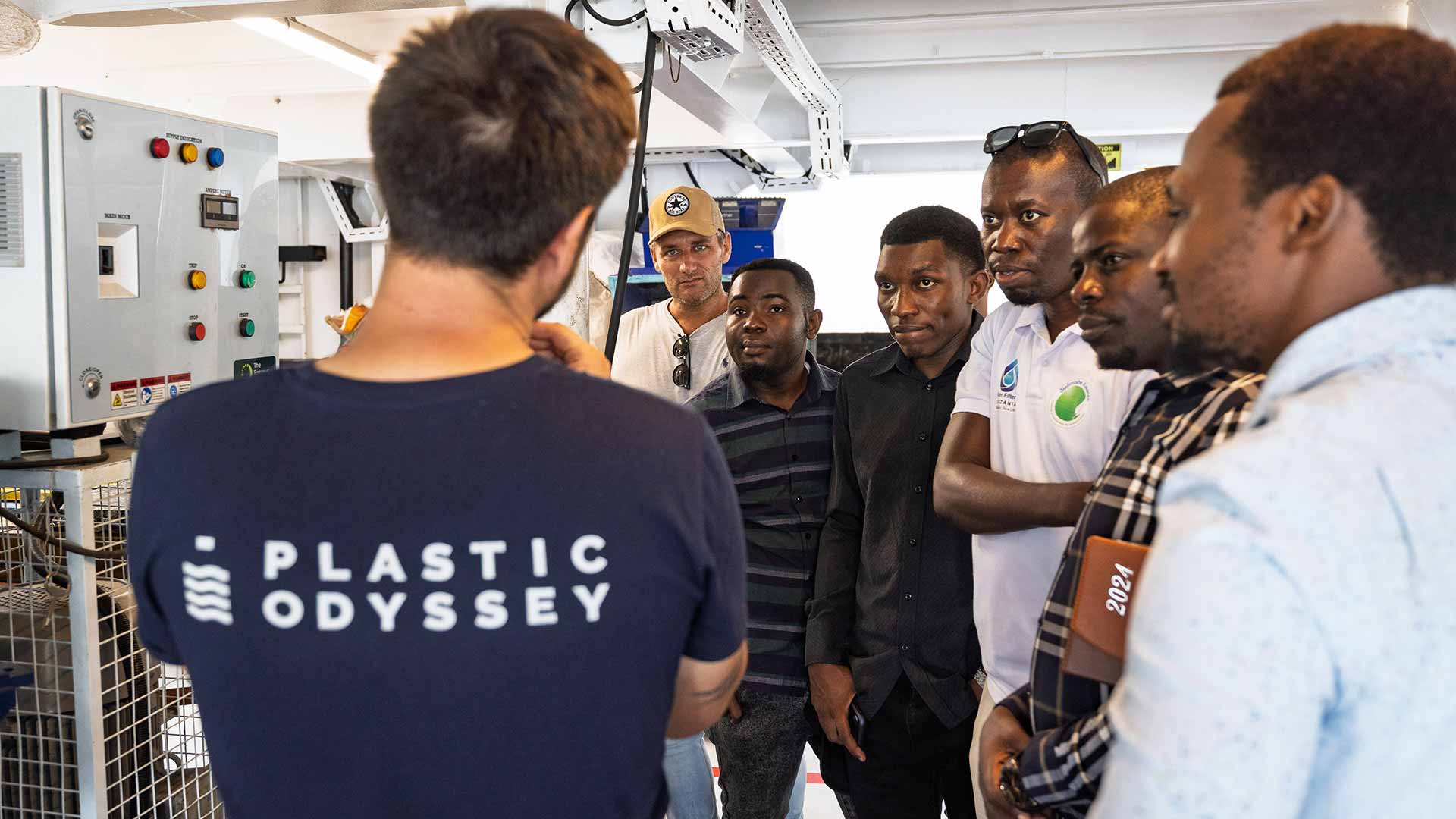
Tanzania: building a local recycling industry
In Tanzania, where less than 4% of waste is recycled and the recycling industry remains largely dominated by foreign players, mainly Chinese and Turkish, the 29ᵉ Onboard Laboratory organized by Plastic Odyssey brought together a dozen entrepreneurs and players involved in plastic waste processing on board the vessel. Together, they shared their backgrounds, difficulties and ambitions.
In addition to technical demonstrations and the sharing of international experience, this session enabled us to forge a local network in a sector that is still fragmented.
29ᵉ edition of the OnBoard Laboratory – Dar es Salaam, August 2025: a condensed but intense day.
The ship’s arrival at the quayside was marked by complex discussions with the port authorities, forcing the team to condense the entire program into a single day.
The event included a general presentation of the Plastic Odyssey project, an overview of recycling initiatives around the world, a tour of the onboard workshop and a practical demonstration workshop, during which participants were able to observe the manufacture of a recycled plastic plate.
Meet the Entrepreneurs
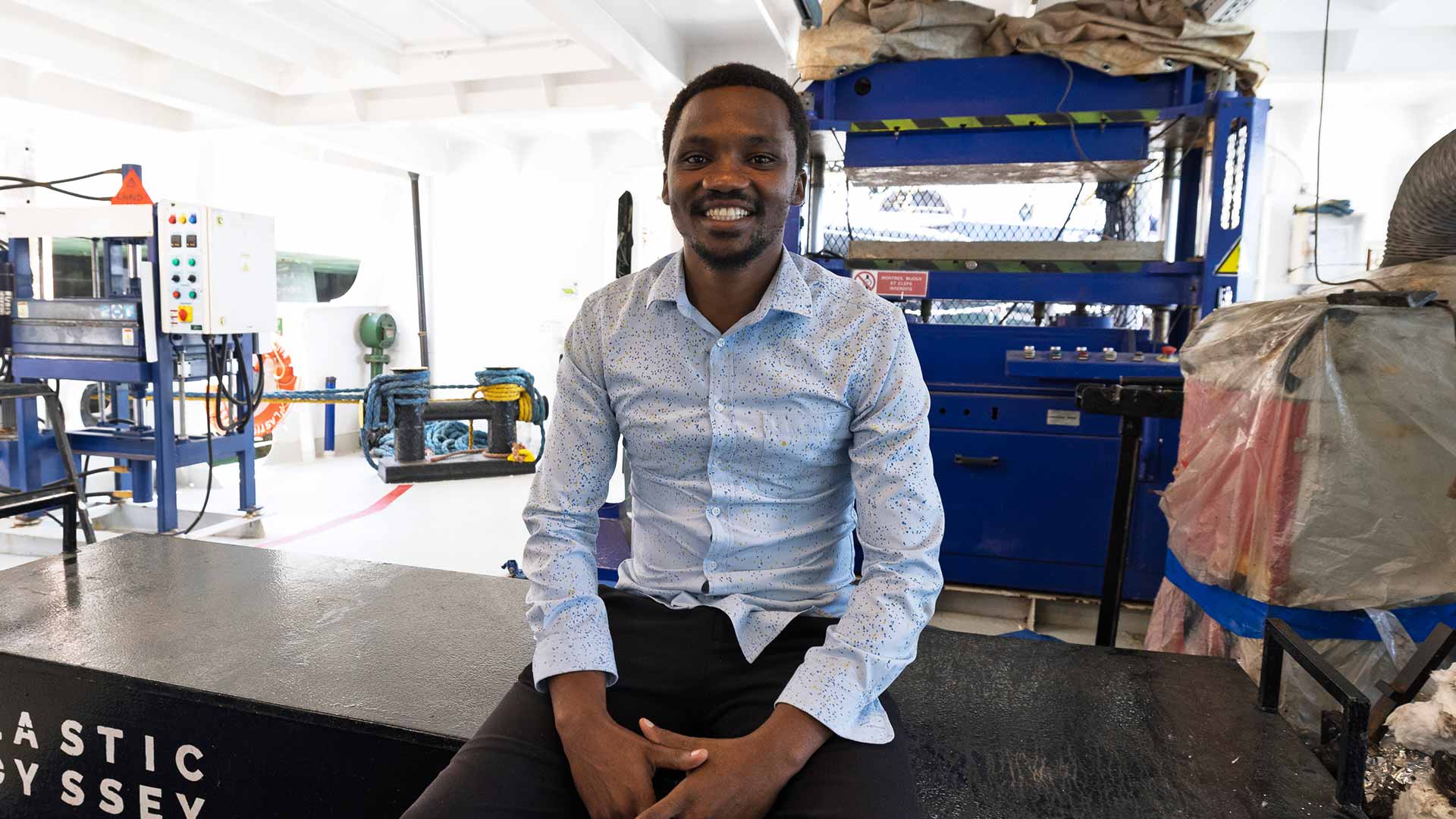
Abdalah Nyambi – Preyo
Founded in 2015 in Dar es Salaam by three young Tanzanians, Abdalah Nyambi, Soka Wence and Amuli Steward, PREYO began as a community initiative, before becoming a recognized recycling company. Its name, Plastic Recycling and Youth Empowerment, reflects its dual mission: to combat plastic pollution while creating opportunities for local youth.
Today, PREYO recovers several tons of plastics every month (LDPE, HDPE, PP) and transforms them into recycled granules, used as raw materials by local companies seeking to reduce their dependence on virgin plastics. The company directly employs around ten people and, through the regular purchase of waste, supports a network of over 200 informal collectors.
Despite investment in a modern extruder, PREYO faces a recurring challenge: consistent quality. Producing pellets that are sufficiently homogeneous and competitive to appeal to manufacturers remains a technical challenge. This is precisely why Abdalah took part in the Onboard Laboratory: to exchange ideas with other entrepreneurs, benefit from advice from the Plastic Odyssey team and find practical solutions to process problems.
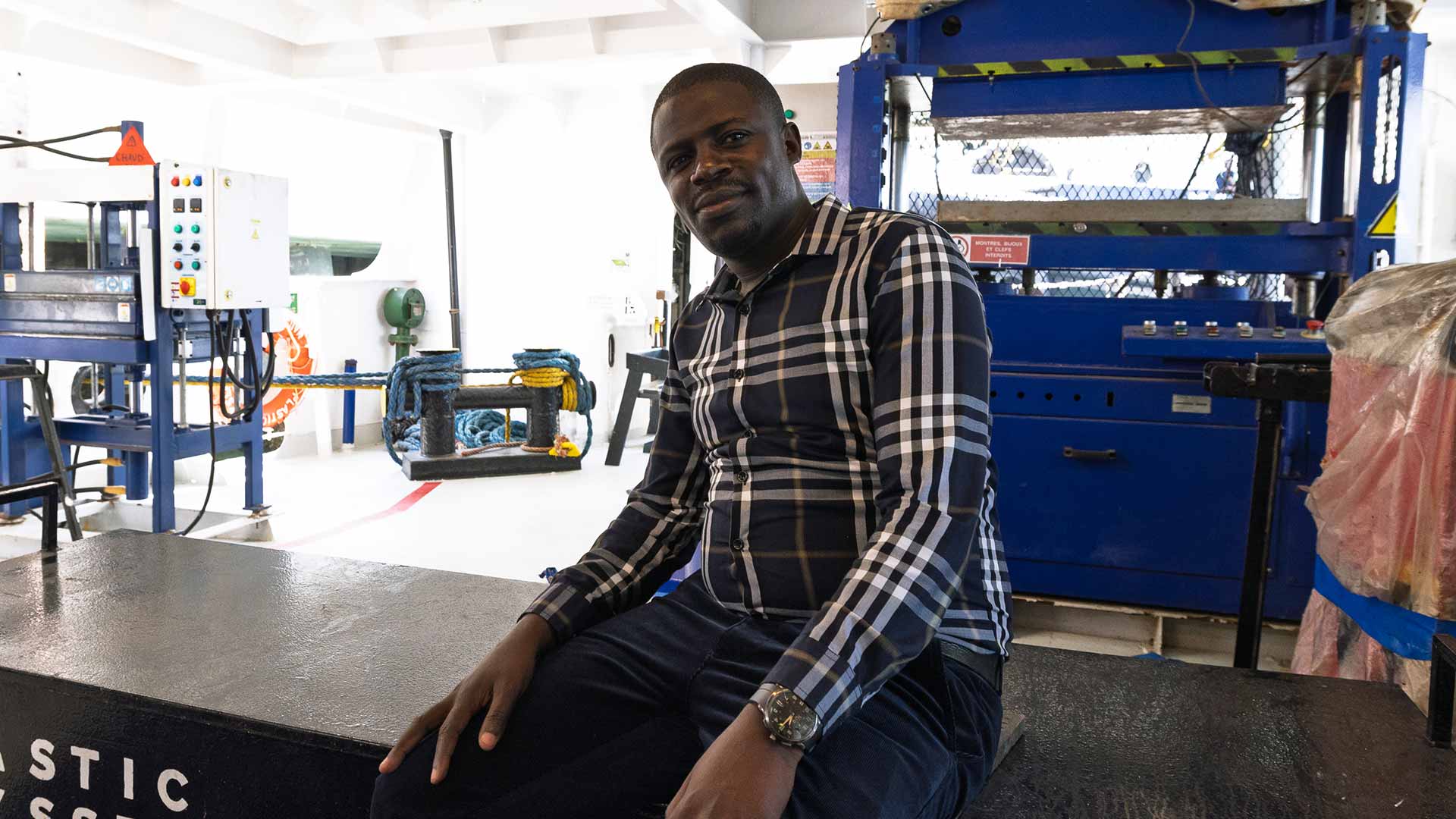
Stephen Kangala – IdFabric
An experienced businessman, Stephen has run two successful companies in very different fields: the conversion of shipping containers into housing, and the resale of tractors. In 2019, he spotted an opportunity in wood-plastic composite (WPC) decking production.
He invested in an extrusion line purchased in China and launched Id Fabric, which now produces around 10 tonnes of boards a month from recycled HDPE pellets.
Always looking to diversify, Stephen tried to produce recycled plastic sheets, but without achieving satisfactory quality. The on-board demonstration workshop enabled him to understand other technical approaches and identify new ways of improving his process.
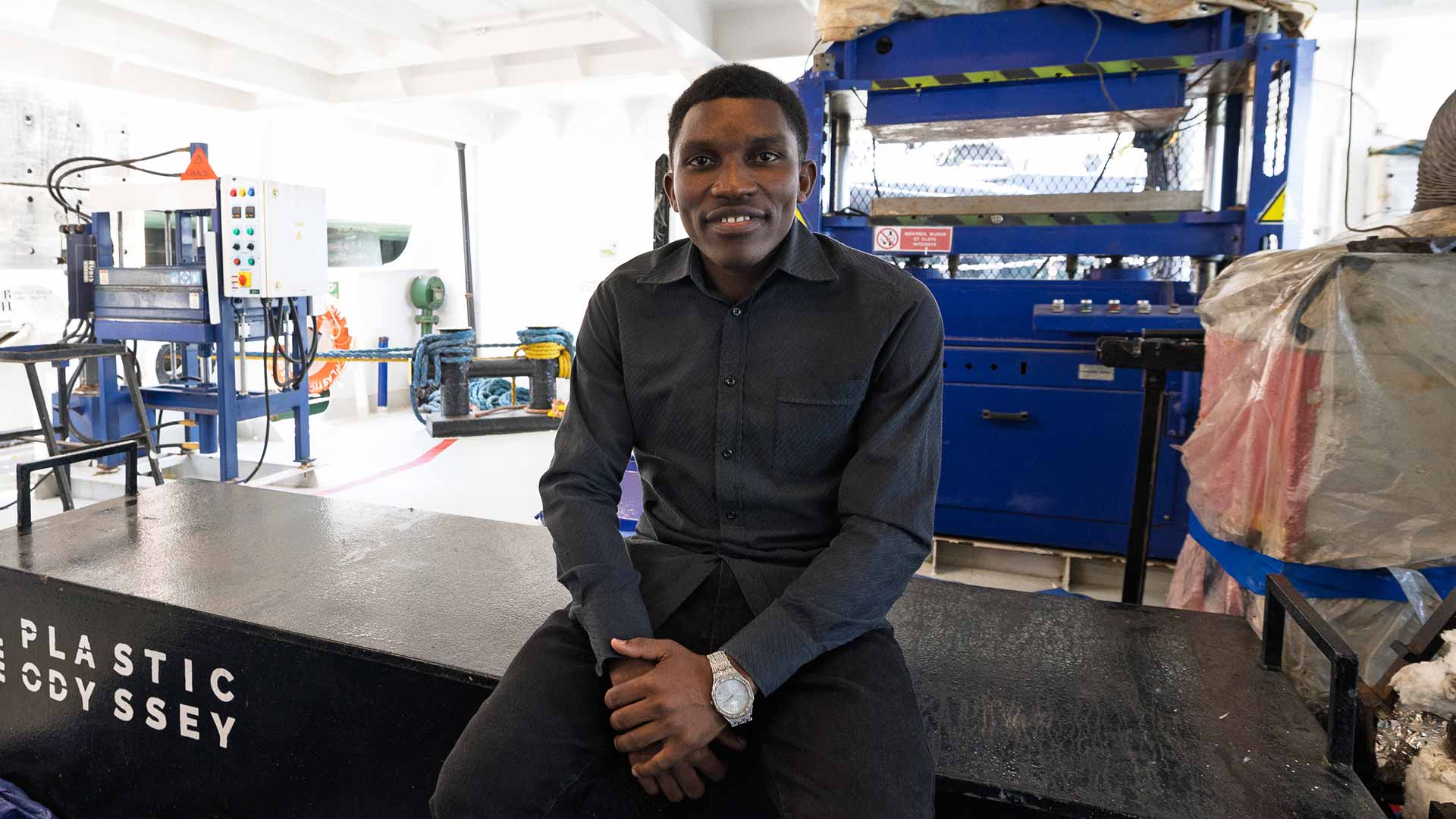
Laetus Buberwa – Nishati Mix
Trained as an engineer, Laetus chose to devote himself to a promising technology: pyrolysis. With Nishati Mix, which he is launching in 2022, he is developing a system capable of transforming plastic waste into cooking gas. His current prototypes operate in small batches of just a few kilos, but his ambition is to design higher-capacity units that are safer and more accessible to local communities.
Pyrolysis, still little mastered in Tanzania, is arousing a great deal of interest: the Onboard Lab provided an opportunity to discuss risks, economic viability and best practices.
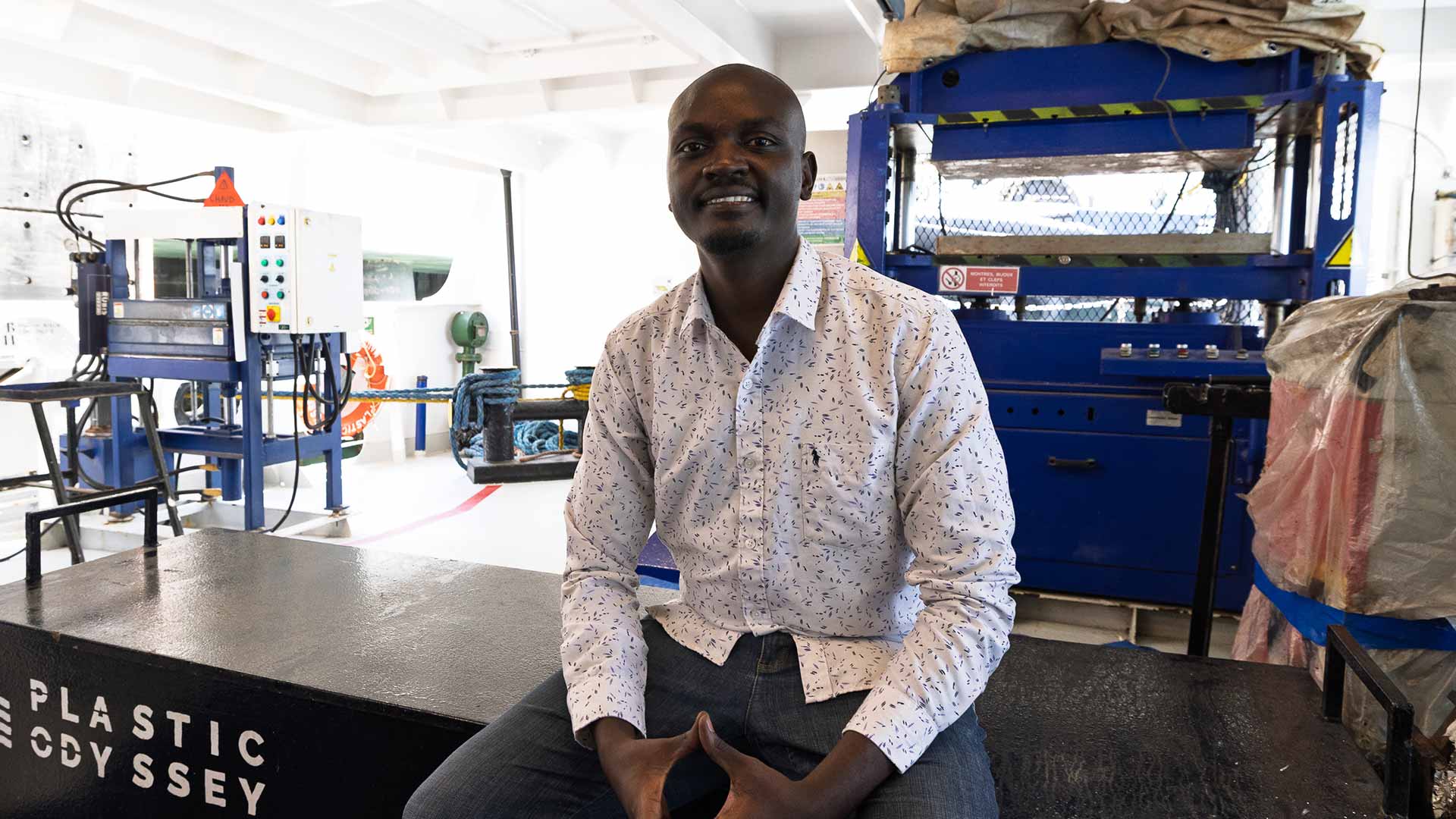
David Kazuguri – Waflo
Only 7 months old, Waflo is already setting itself apart with its innovative approach. David focuses on building a reliable supply chain for clean, sorted plastics.
Its model is based on modular stations — Waflo Hubs — installed in residential areas. These hubs buy directly from waste pickers and municipal trucks, then sort, aggregate and resell the plastics to recyclers.
The digital platform developed by Waflo ensures the traceability, efficiency and transparency of the system. David sees digital technology as a way of bringing confidence and fluidity to a sector that is still informal and unstructured.
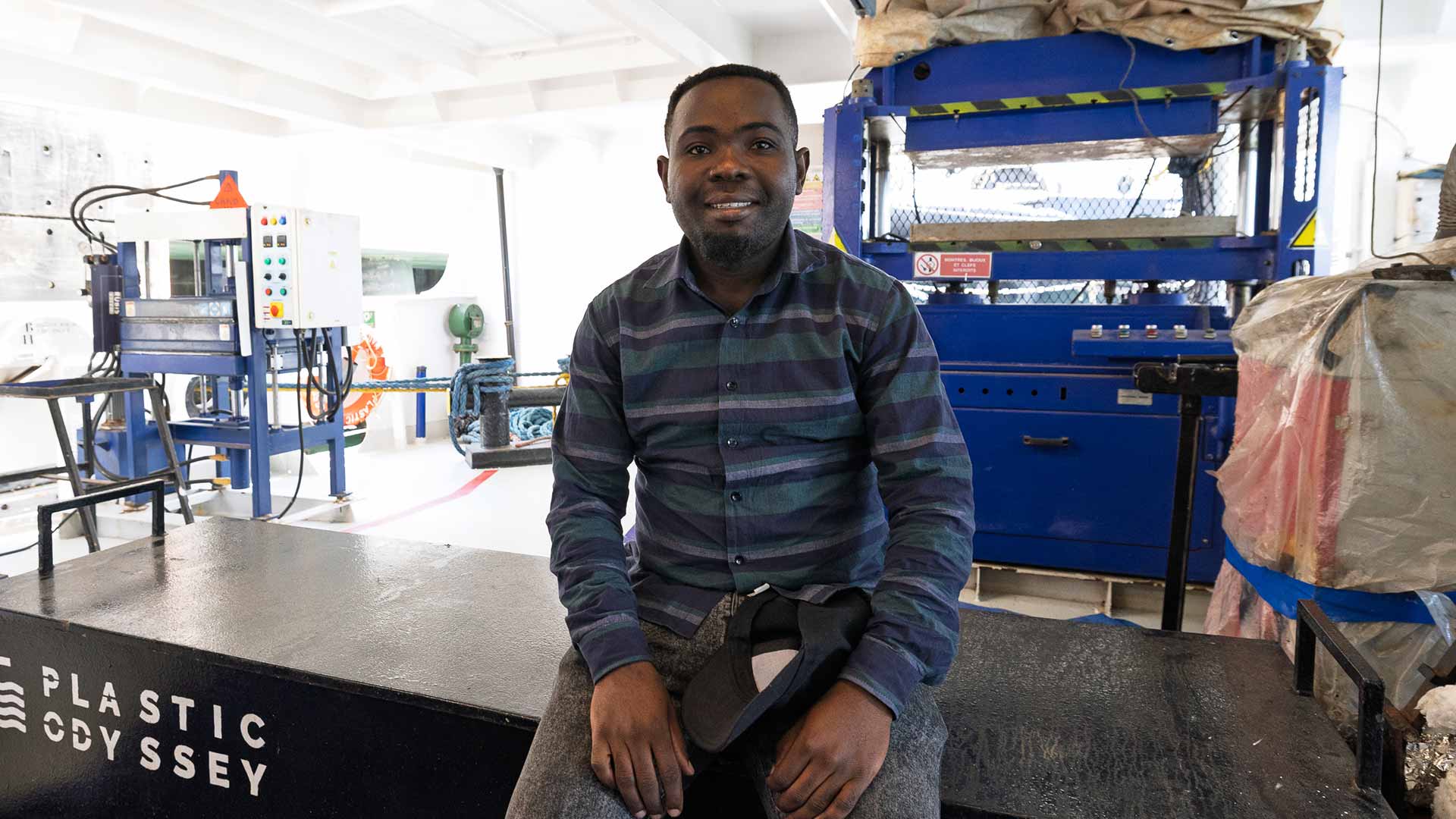
Abdallah Mnyelema – EcoAct
Founded in 2014 as a simple aggregation center (MRF), the company bought waste from waste pickers to resell wholesale. With the accumulated profits, Abdallah was able to invest in a grinder, and then, in 2018, in a second-hand extruder thanks to co-financing from the IUCN.
Today, EcoAct produces recycled plastic poles and boards, mainly sold to the tourism sector (Zanzibar, Arusha). But dependence on seasonal orders makes the model fragile. Abdallah therefore wants to diversify his customer base, explore new markets and increase the resilience of his business.
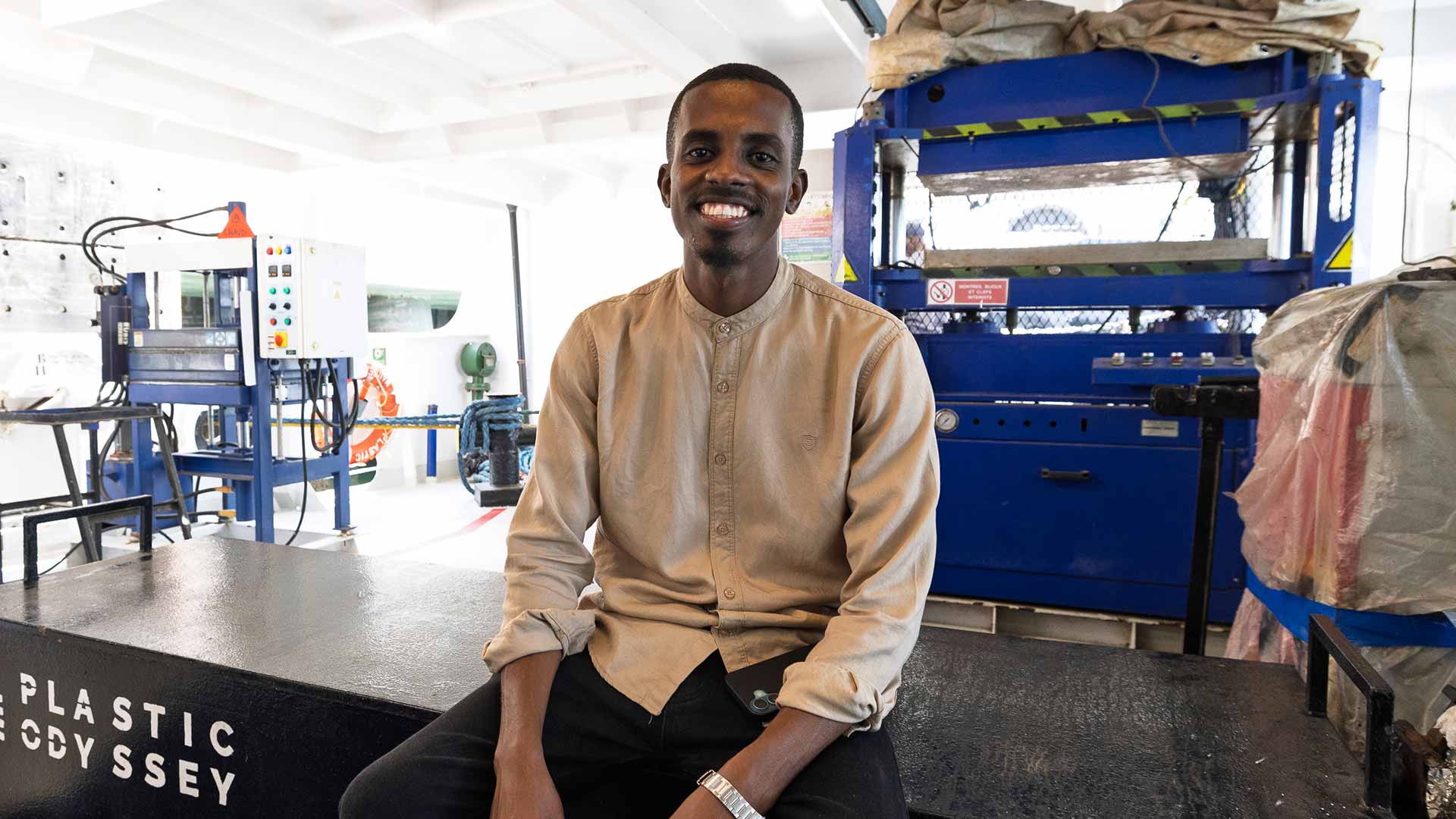
Ghaamid Abdulbasat – IUCN Tanzania
An employee of the local branch of IUCN (International Union for Conservation of Nature), Ghaamid oversees several projects linked to the collection and treatment of plastic waste in Tanzania. This international organization, founded in 1948 and present in over 160 countries, supports local initiatives to preserve ecosystems and promote sustainable management of natural resources.
The Onboard Laboratory enabled him to meet some of the entrepreneurs already supported by IUCN, and to discover new ones likely to benefit from future programs.
A National Geographic explorer in his own right, Ghaamid found Plastic Odyssey a particular resonance with his own journey: a combination of adventure, innovation and environmental commitment.
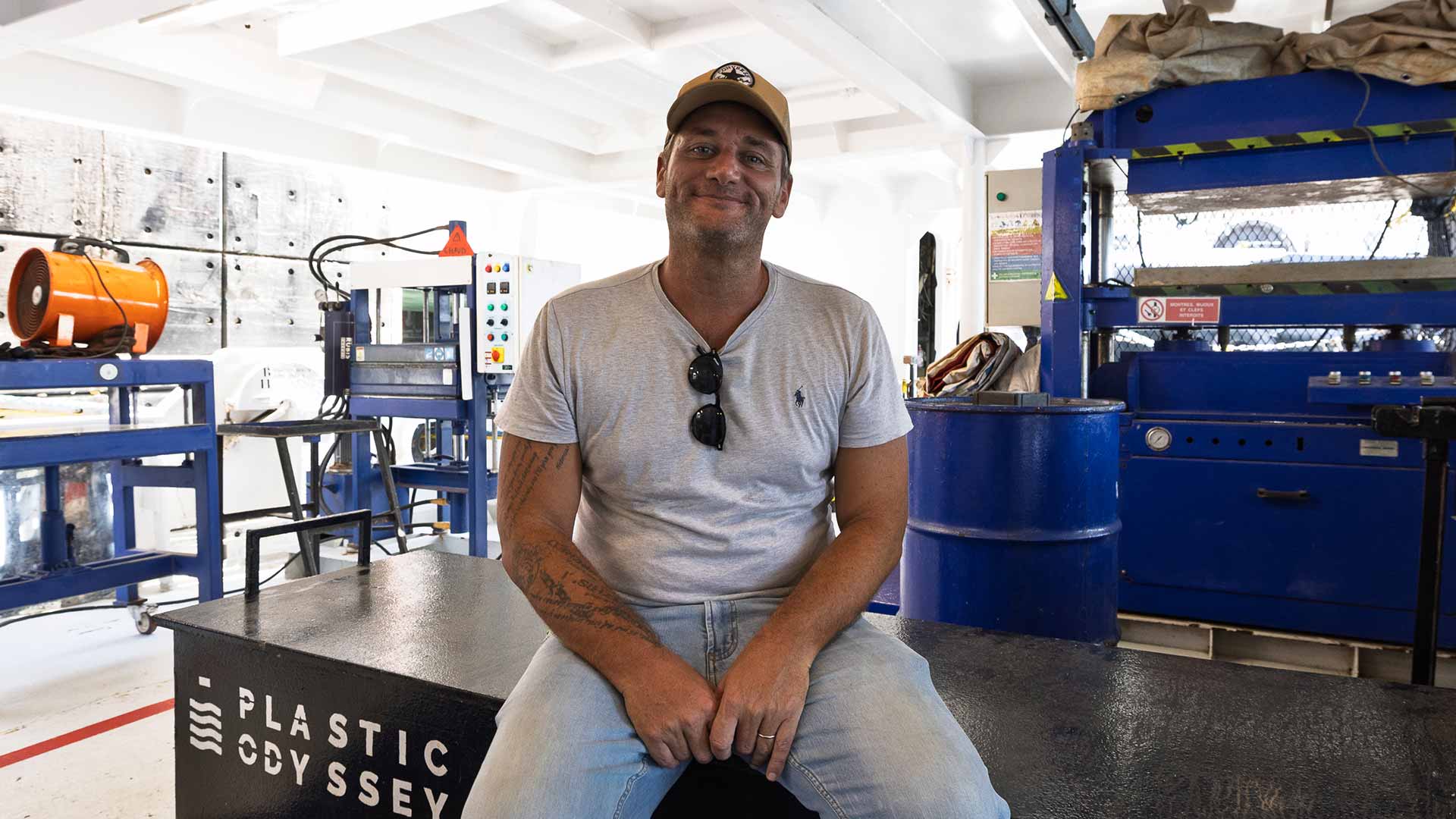
Andrea Bosio – LVIA, Kijani Pemba Project
Based on the island of Pemba, Andrea is Project Manager for the Italian NGO LVIA. Its Kijani Pemba project aims to strengthen urban resilience through better waste management. By 2026, a sorting center is due to be set up, and Andrea is actively seeking local solutions for recycling plastic.
With experience in various development projects in Africa, he sees the Onboard Lab as a unique space for identifying technical partners and drawing inspiration from initiatives that are already up and running.
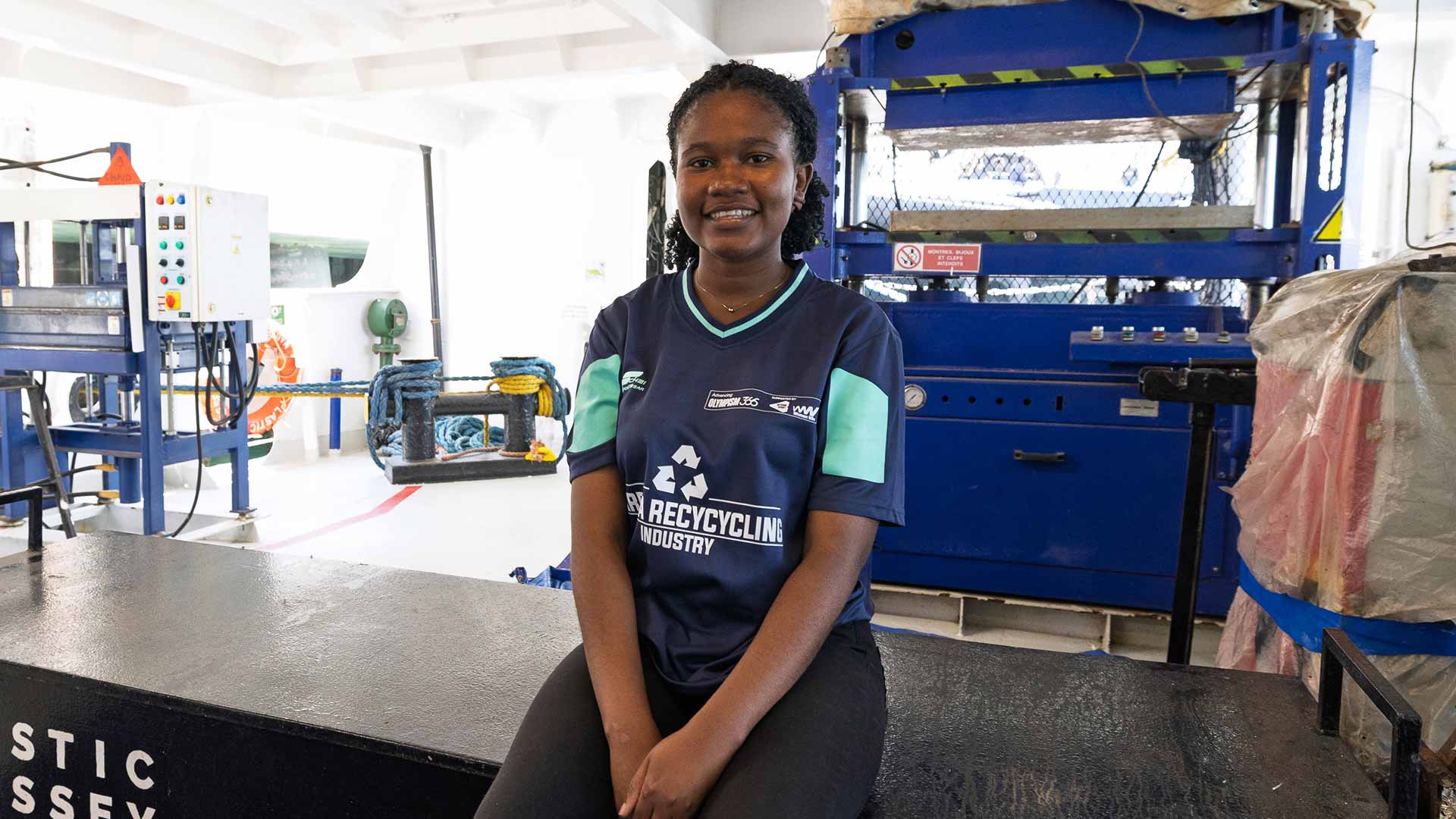
Maria Daudi – Arena Recycling Industry’s
Arena Recycling’s story is a good illustration of the journey of passionate entrepreneurs. It all began in 2019, in the garden of Hellena Sailas, one of the co-founders, then still a laboratory technician at the university. Together with her partner Maria and a few friends, they experimented with handmade paving stones, mixing sand and melted plastic in a simple pot. After numerous more or less conclusive prototypes, the two young women decided in 2021 to take on the project full-time.
In 2022, they raise their first funds to rent a warehouse and structure their business. In December 2024, thanks to a UNDP program, they obtained an extruder manufactured locally by a Tanzanian engineer, marking a decisive turning point in their production capacity.
Today, Arena Recycling employs around 20 people, most of them women, and produces around 50 m² of paving stones a day by mixing sand and mainly PET, which is readily available in large quantities in the surrounding area. Thanks to competitive prices compared with cement, the company is seeking to establish itself as a credible player in sustainable building in Tanzania. The main limitation remains their production capacity, with a machine still only partially adapted and a process still to be perfected. Maria was delighted to discover on board the high-quality plastic-sand paving stones, as well as the videos of the processes developed by the Plastic Odyssey teams in Dakar.
Having won the IUCN’s call for projects to collect plastic on the islands of Pemba and Zanzibar, Maria and her team will have to transform their business and mobilize all their industry expertise to meet this new challenge. Arena Recycling is also in discussion with institutions such as UNICEF for large-scale construction projects, which will be great pilot projects, enabling the company to test itself, strengthen its expertise and gain legitimacy.
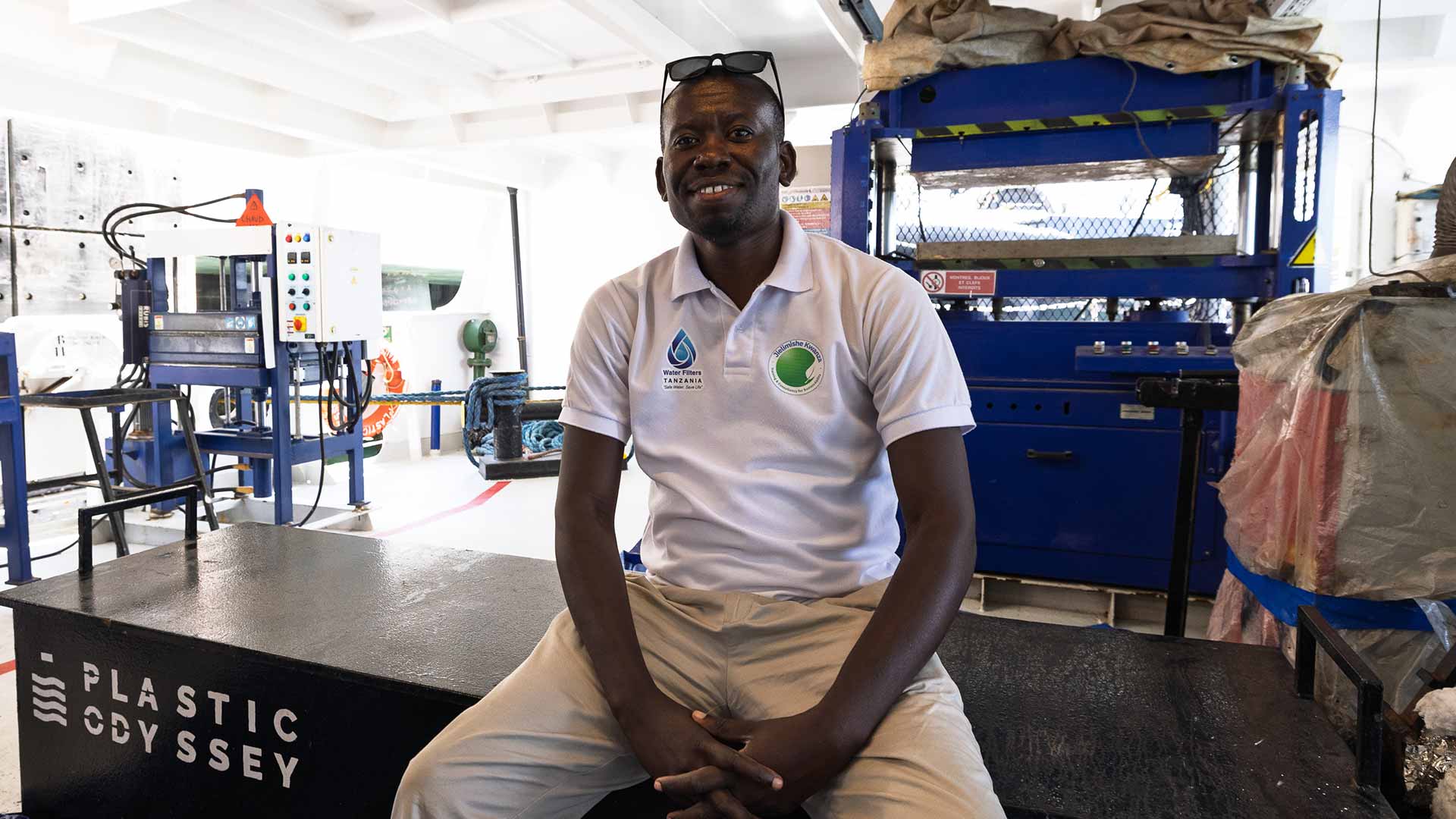
Henry Kazula – Tanzania Recyclers Association (TARA)
Created in 2019, TARA brings together waste pickers and recycling companies in a collective approach. Henry insists on one thing: on their own, the sector’s players remain fragile and voiceless, but united, they can influence public policy.
TARA campaigns for the integration of informal reclaimers into the formal economy, drawing inspiration from countries where these practices have proved successful. The association positions itself as a relay between the field, public authorities and landlords, to bring about a genuine circular economy in Tanzania.
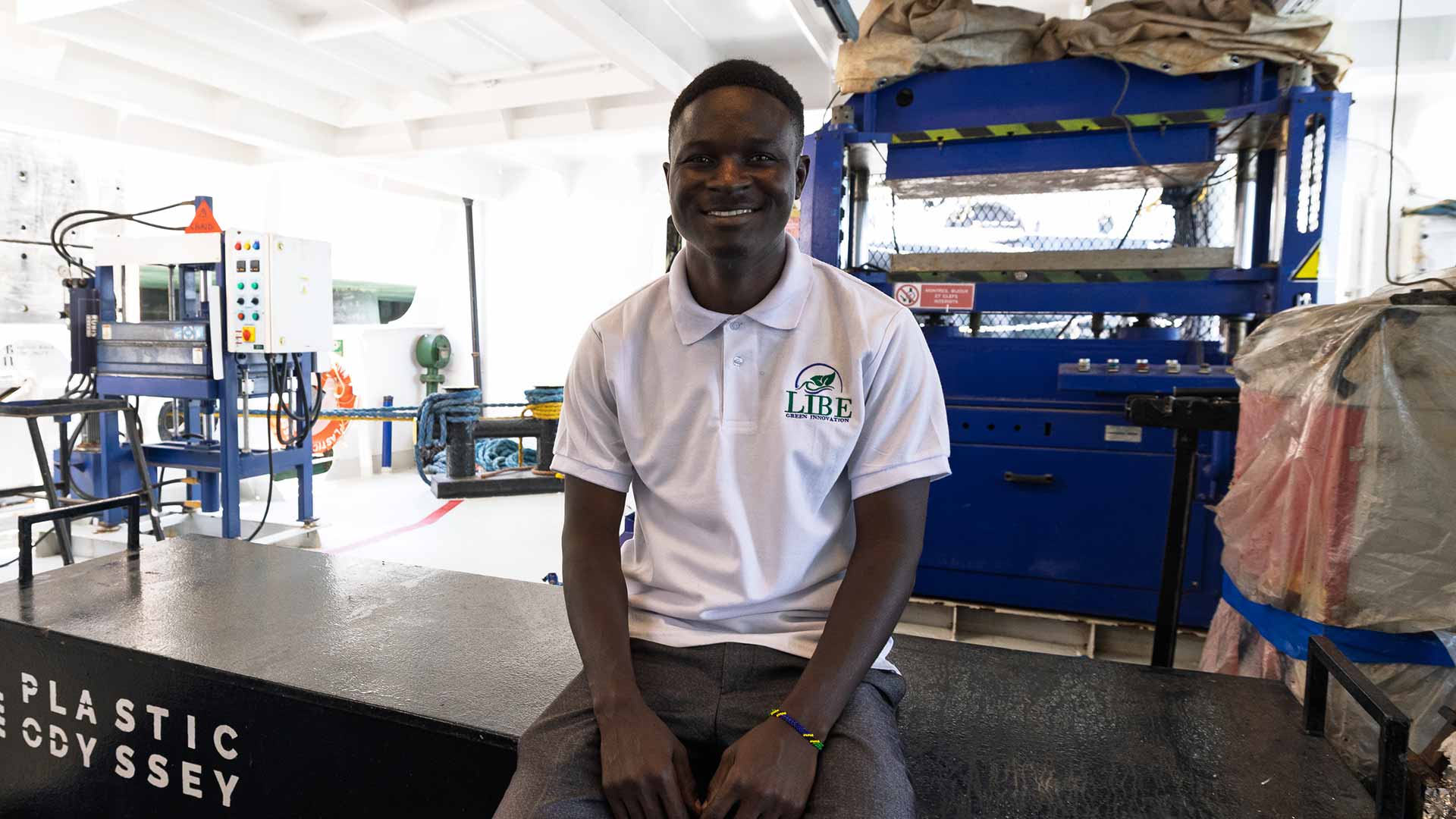
Christopher Kolimba Mwaiswelo – Libe Green Innovation
Since 2018, Libe Green Innovation has developed as a collection and pre-processing center based in Dar es Salaam. The company collects several dozen tonnes of PET, HDPE and PP every month, which it crushes and then resells to agglomerators and recyclers.
Although the business remains modest in terms of volume, it meets a crucial need: securing a regular supply of sorted plastic, a prerequisite for the growth of local recyclers.
Towards a professional recycling network in Tanzania
This 29ᵉ edition of the Onboard Laboratory confirmed the importance of federating entrepreneurs who are still isolated in their initiatives. All share the same ambition: to develop a Tanzanian recycling industry capable of creating value and jobs locally, while reducing dependence on foreign players. They repeatedly stressed the lack of knowledge about the recycling sector in Tanzania, and the importance for an entrepreneur of being able to meet experts with a good understanding of what exists, like the Plastic Odyssey team.
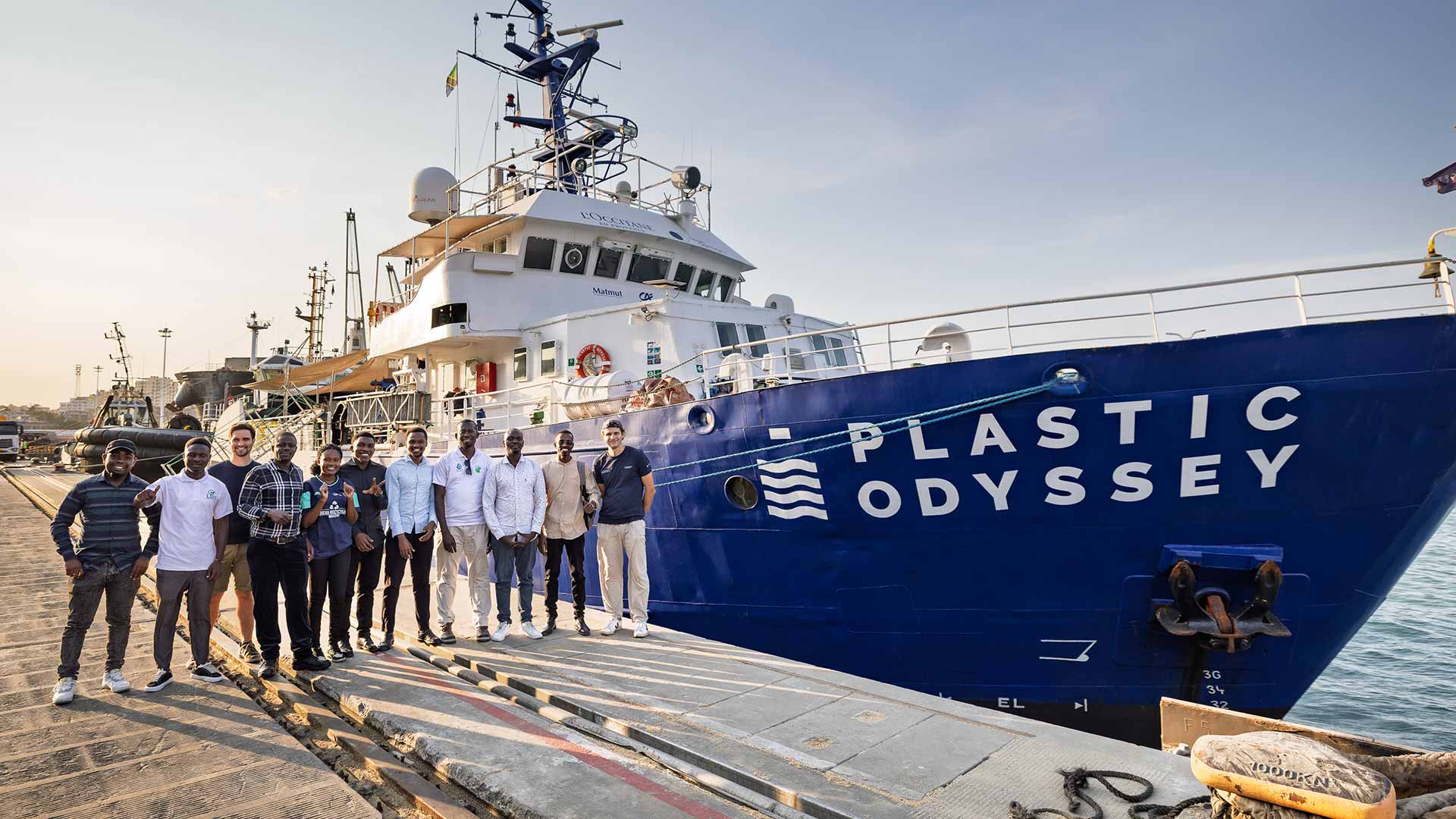
Despite the brevity of the session, the exchanges on board planted the seeds of a professional network that is destined to grow stronger, and opened up concrete prospects for technical and economic collaboration.

OnBoard Laboratory, our incubation program for recycling entrepreneurs
At each stopover on the expedition, the Plastic Odyssey vessel welcomes on board several local recycling entrepreneurs to exchange ideas and develop concrete solutions to combat plastic pollution.

